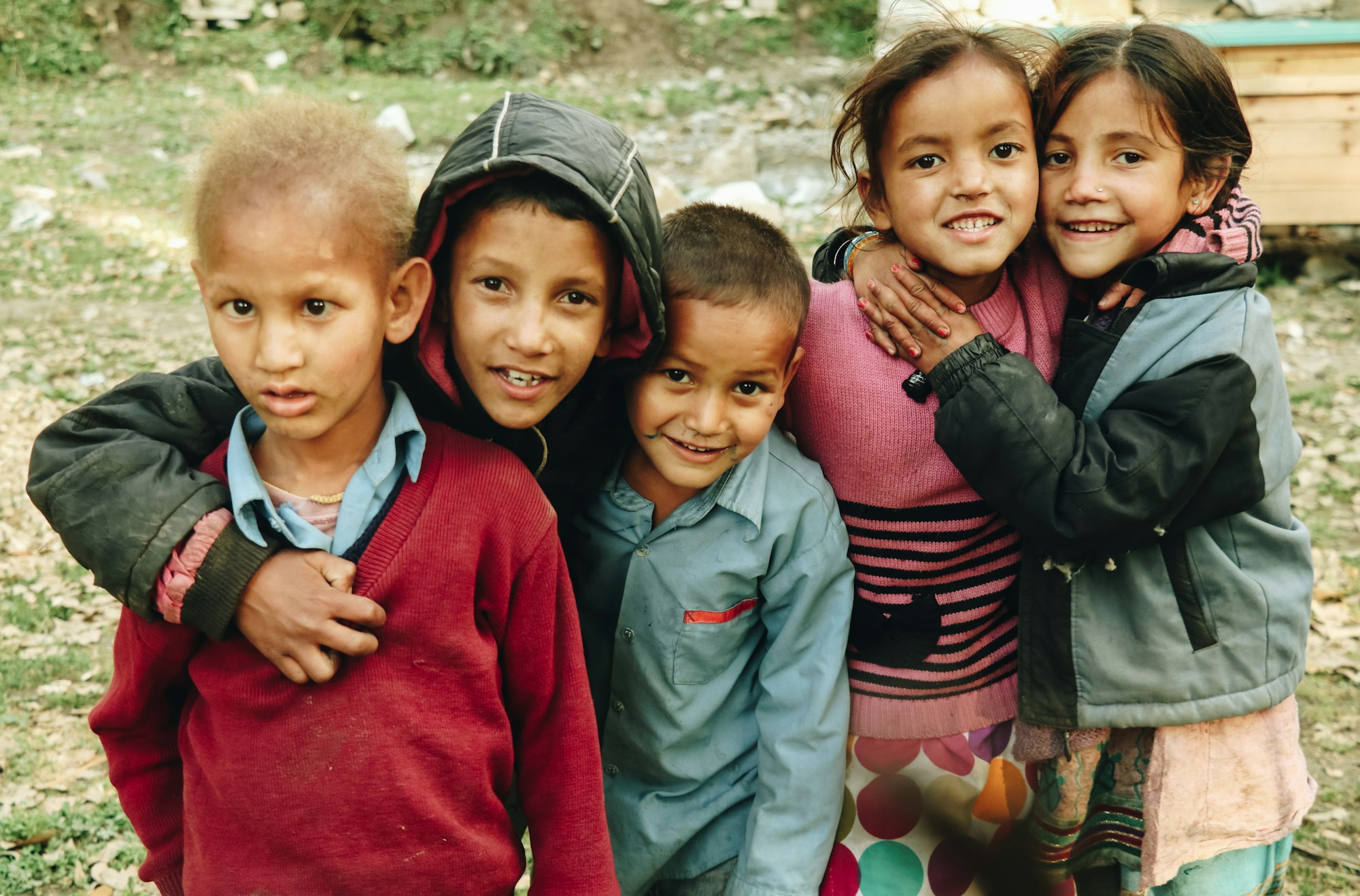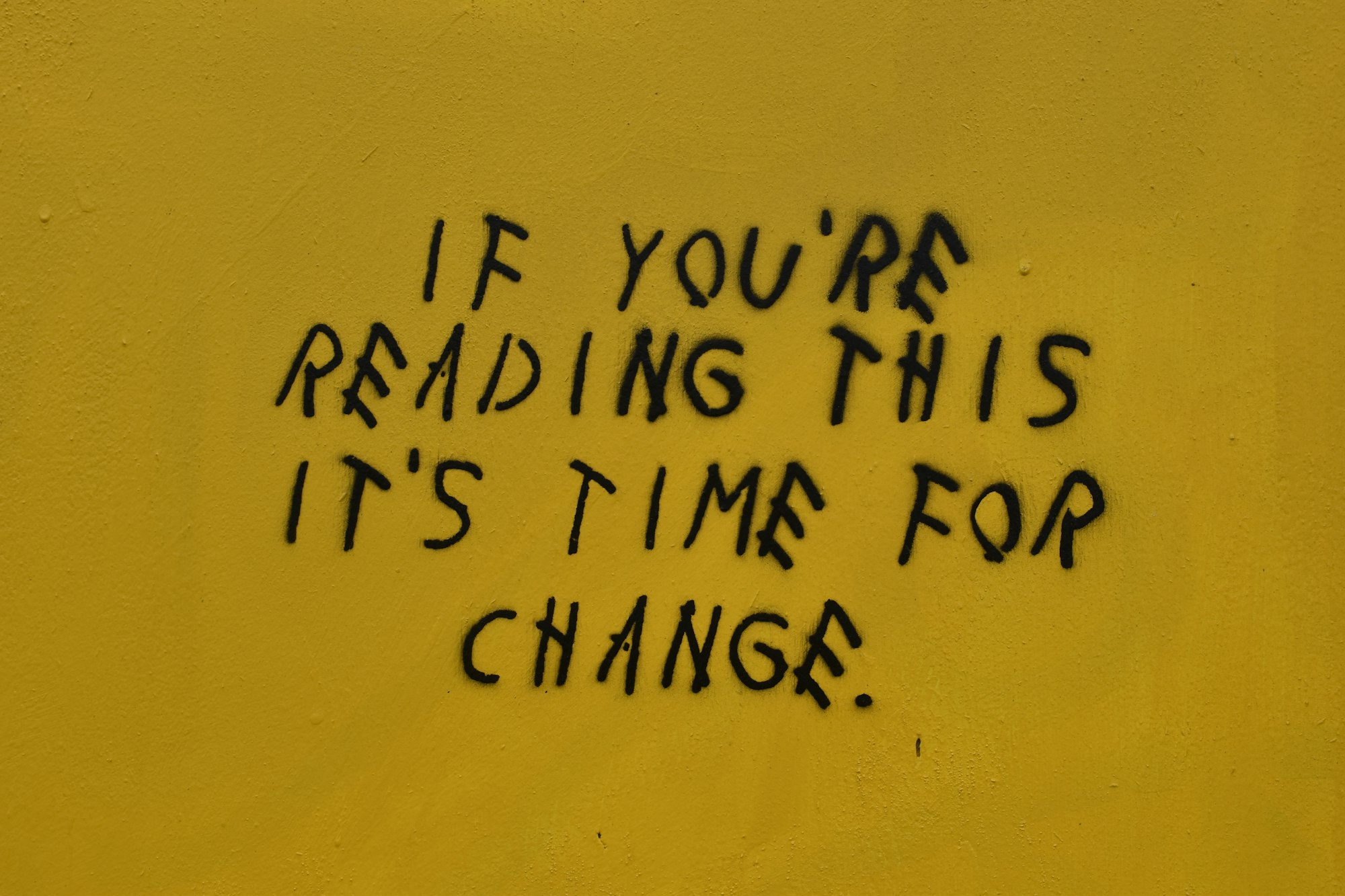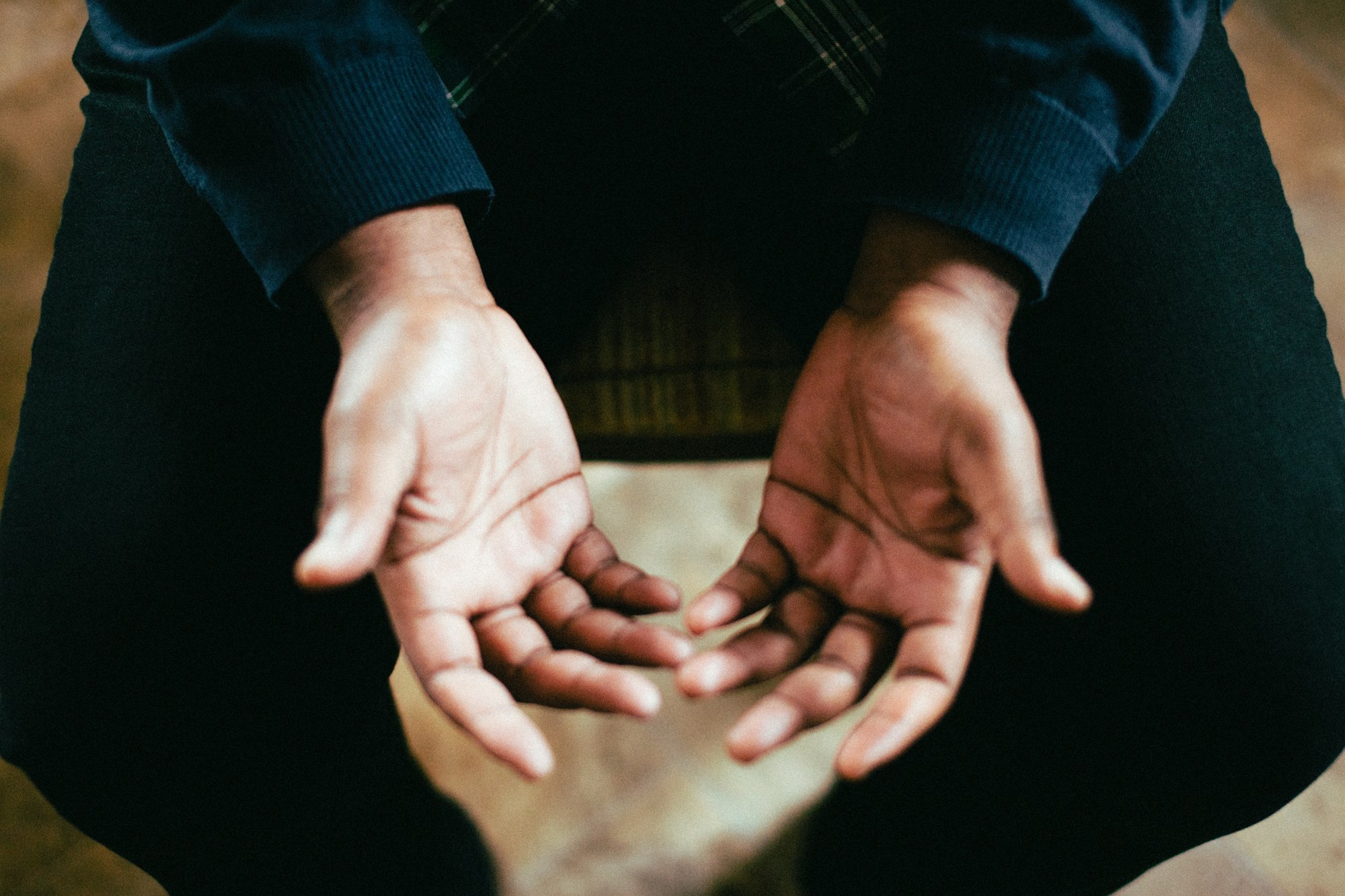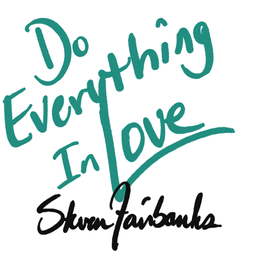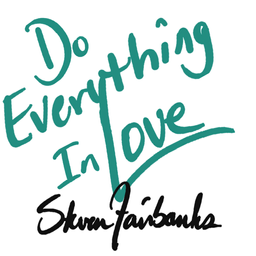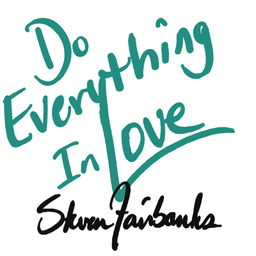Which Way Will You Go? (Full Transcript)

Alternative Routes, Part One
After encountering Jesus in worship, you face the same pivotal choice as the Magi: which path will you take? You can return to "Herod"—representing worldly powers, comfort, and self-interest—or choose the alternative route following Jesus, which may be bumpy, winding, and precarious, but leads to transformation. This choice illustrates three important truths: first, the proper response to genuine worship is taking a different path home; second, meeting Jesus fundamentally transforms you like a caterpillar becoming a butterfly; and third, these intentional decisions shape your journey. Like Joshua declaring "as for me and my household, we will serve the Lord," you must decide at each step whether to follow the way of Herod or the way of Jesus—not alone, but walking together with fellow believers who lift each other up when you fall.
In this post:
- Watch this message
- Devo by Stevo (5-day devotional based on this message)
- Full transcript of this message
Watch this message:
Full transcript:
Frank Abagnale Jr., from the age of 16 to 21, posed as a pilot, faked his way as a doctor, pretended to be a lawyer, and in the process defrauded lots and lots of people out of millions and millions of dollars through a variety of different schemes that he devised and carried out. Lots of people lost a lot of money because of the things he did. You might remember his story if you saw the movie from several years ago with Leonardo DiCaprio, "Catch Me If You Can." It's an old one, and I don't know if he looked like Leonardo or not.
But like most criminals, eventually he got caught, and then he had a choice to make. He could either go to prison, carry out his sentence, and then get out at some point and go back to his life of crime or whatever. Or he could take the offer that the FBI gave to him to come and help them develop strategies and procedures to help protect people from fraud, to help protect people from suffering the same things that he had done to others.
So he took that deal, and over the rest of his life, he helped save millions and millions of people from losing millions and millions of dollars. He developed safe banking and document procedures that helped many people. Later in his life he said, "Early in my life I became notorious for the things I did. Later in my life I found fulfillment in the opportunity that had been given to me." His life was transformed starting with one good choice—one good choice to take that offer and begin to help people rather than hurt them.
In our message today, we're going to look at some people who also had a choice to make, and then we're going to see how we today have that same choice as well. So the question that we're going to keep in our mind today is this: after we come and bow before Jesus, after we come and meet Jesus, which way do we go? What choice do we make? What path do we take?
We return to Matthew 2. You might remember we looked at the Magi visiting Jesus a couple weeks ago. So these Magi, they traveled a long distance from the East. They had seen the star, and they followed the star, and they came to Jerusalem and met Herod. Herod said to them, "Who is this King? Where is he born?" And he tells them, "Go and find the king. Go and find this new king. And when you find him, come and tell me where he's at so I can come and worship Him." Of course, we know that was baloney—he didn't want to worship him.
So the Magi follow the star right to the house where Jesus is, and we figure he's probably two or so years old by then. They come and they bow and they worship and they bring him the gifts of gold and frankincense and myrrh. We don't know how long they stay. I think in our minds we kind of think, you know, they gave the gifts and then they're like, "Well, got to be on my way back." We don't know if they stayed for a while or not, but eventually it was time for them to go and return home.
They had a choice to make. Did they go back to Herod like they had been requested to do? Or was there another choice, another route that they could take? The choice ultimately came down to choosing King Herod and the kingdoms of the world, or choosing King Jesus and the kingdom of God.
Let's talk about Herod for just a minute. Herod was an Edomite, which means nothing to us probably, but what that means is about 150 years previous to this, his people had been conquered and they had been forced to convert to Judaism. So Herod was a Jew, yes, but it really wasn't a heart thing for him. He and his ancestors had been forced into it, and so he knew how to talk the talk probably, but walking the walk was a whole different issue—never reached his heart.
He was a political opportunist. When there was a power vacuum in Jerusalem, his family had money and opportunity and the ability to kind of buy their way into power. So that's kind of what happened there. His family had money, and they could play the political games that people with money and wealth and opportunity and power can play—the people games that people like us can't really play. They played the games, and he got into power and he became King Herod the Great.
He was mean and suspicious of everyone. At one point he even had his wife, whom he loved, killed because he thought she was plotting against him—and two of his children and her family. He had them all killed out of fear, out of this desire to keep power at all costs. And when it was time to die, when he knew his time of death was coming near, he told his soldiers, "When I die, go and kill some of the leading citizens, the most respected citizens in the Kingdom." So that when he died, people would be mourning—not mourning him, but they'll be in mourning, and the image will stay intact.
Herod represents to us all that the world has to offer—all the things that our world tempts us to grab onto and take hold of, to trust on and depend on for our well-being and our hope and our future.
But then there's King Jesus, again at this point just a two-year-old boy or so, born in the manger. Herod is building castles and walls and protecting himself, and Jesus comes in a manger—unprotected, vulnerable—and he's living in a house with his parents.
John wrote in 1 John 4:18 that there's no fear in love. Perfect love drives out fear because fear has to do with punishment, and the one who fears is not made perfect in love. Jesus taught about a kingdom that was full of truth and grace, and he was harsh to the religious leaders because they tried to shut the kingdom off to other people. They tried to limit who could come in.
We know the story of when he turned over the tables in the temple, and it was because that space that was designed for worship—the outer courts for people to come, the outsiders, the people who didn't have a lot—to come and worship, but it's being used for other things. It's being used for other non-worshiping things, and Jesus gets upset because people are being shut out and not given the opportunity to come and worship.
Herod had soldiers and tried desperately to keep his power. Jesus knelt down near the undesirables, next to the unvalued untouchables, and loved them and spoke to them and treated them like human beings made in the image of God. Herod was an authoritarian king. Jesus came as a servant king.
John also wrote and gives these words to Jesus: "I am the Good Shepherd." He doesn't call himself a king, doesn't call himself a ruler. "I am the Good Shepherd," and a shepherd lays down his life for his sheep. Jesus was all about the will of the Father. He was all about lifting up the kingdom of God, and he carried out that purpose in relationship with people each day—walking, talking, sitting, eating lunch with people.
Jesus saw people, and he commended them for their faith when no one else even paid attention to them. Herod was scared to lose his power, and so he killed to keep it. Jesus willingly surrendered his life, gave his life so that others could find life, including you and me and all of our loved ones and the people around us.
Those who live in fear will die by fear. Those who live by power will die by power. But I think Jesus shows us that those who live by grace, those who live in God's grace and share that with others, those are the people that change the world. Those are the people that go out and do something meaningful and worthwhile.
So when we choose Jesus, when we're like the Magi and we meet Jesus and we bow before him, we have a choice to make. We can either go back the same way we came, back to Herod and the Herods in our life—all those things that the world says we need—or we can take a different route home.
When we lived in East Java for several years, there was a volcano, and part of what happened in the volcano was, on the other side of the island, mud started pouring out of the earth. It's crazy—covered up a whole entire village and began to cover up a roadway, a major roadway. So it got to the point several months later where if you wanted to go north, you ended up waiting for hours sometimes for them to clear the mud off the road and let a few through.
But then there were all these people lined up along the road with these signs saying, "We'll take you on an alternative route for three bucks or ten or whatever." So they'd get on their motorcycle, and you'd follow them. They'd take you through fields and through villages and over these massive potholes and mud-soaked alleys and through people's yards and up these steep narrow paths that barely qualified as road. It was precarious. It was a little scary sometimes, as most alternative routes are.
So we go back to the Magi. They've got this choice to make: go back to Herod or take a different route home. In Matthew 2:12 it says, "Having been warned in a dream not to go back to Herod, they returned to their country by another route." We don't know what they were thinking before that dream, but that dream convinced them—at the very least, we've got to take another way home.
We could go back to Herod, and going back to Herod might be more lucrative for us. He might reward us. There might be career advancement opportunities or opportunities for partnerships and alliances. This could be good for us. But going back to Herod was also anti-Jesus in every way—antichrist, if we want to say it that way.
And we have similar choices today, don't we? We can go to Herod—the people and the places and things that lead us away from Jesus, that cause us to exalt ourselves, the "what I want, when I want it, how I want it" way of life—and whatever those Herods are in each of our lives. Or we can take the path that leads to Jesus, and that path is going to be more bumpy probably. It's going to be winding, and you're going to wonder, "What in the world and where in the world are you taking me, Lord?" And it's going to be precarious.
But that's our choice: go back to the familiar way, back to the Herods, or take the unfamiliar, maybe more difficult, longer route of following Jesus Christ in our lives.
So as we think about that, I want to briefly give three things that I think are important for us to think about about these alternative routes that we have the opportunity to take.
The Alternative Route Shows the Proper Response to Worship
The first one is that the alternative route shows us the proper response to bowing down in worship. The Magi had bowed down. They had given their gifts. Seems like something changed even with that vision—they were not willing to go back to Herod. The proper response to worshiping the Lord is to take the alternative route.
The word that's used in Matthew for the bowing down is "proskuneo," and it's not just a quick bow. It's not even down on your knee like we do at the altar. I mean, it's full-on, face to the ground—you get back up with mud on your forehead kind of bowing. There's no lower bow. There's no way to go any lower. And so this is the kind of bowing we're talking about.
So the question before us is: to whom or what are we bowing down? To whom or what do we bow the lowest—face on the ground, forehead getting muddy kind of bow? What or who in our life is in that place? Or maybe another way to think about it is: who sits at the highest throne of our heart? Who's at that highest place, the place where there is nothing higher? Who or what sits in that throne?
Because here's the truth: bowing down to Jesus and taking the alternative route—there's a lot of great things about it. New life, forgiveness, salvation—can't beat that. But at the same time, following Jesus will mess up your life. It'll mess up your plans. It'll change your plans, because Jesus doesn't mess around. Walking with Jesus isn't just all happy talk, easy listening radio all the time. It's a bumpy, long, winding road sometimes. But to use a phrase I learned from my son, it might be low-key the best decision you'll ever make.
The Alternative Route Represents Transformation
Number two, the alternate route represents the transformation that happens when we meet Jesus. When we meet Jesus, we're not the same. When a caterpillar turns into a butterfly, I mean, it's an amazing process. I don't know if there's any more amazing example in nature. You've got this caterpillar, and you know what a caterpillar looks like, and then you've got a butterfly, and you know what a butterfly looks like. How can those two things be the same—come from the same thing?
When a caterpillar becomes a butterfly, there's no going back to caterpillar, is there? I mean, you're a butterfly now. I don't know why you'd want to go back to caterpillar, but it's not even an option.
And 2 Corinthians 5:17 says that in Christ we are new creations. There is new creation. The old has gone, the new has come. We're not just version 2.0. We're not just making better decisions. We're not just having more self-discipline. Those things will happen. And it's not just removing a few of the glitches that are most annoying. When we're in Christ, we are new kinds of people, a whole different kind of human being with different priorities, with different perspectives.
It's like a butterfly and a caterpillar—you can't even compare the two. It's like trading in that old rotary phone that was nailed to the wall, and you could only go so far with the cord. You can't go anywhere, you can't have any privacy. And now you've got this smartphone that can do everything in the world, and you can take it anywhere you want and talk to anyone at any time. It's a brand new kind of person when we are in Christ.
It doesn't mean that there's no bumps—there will be bumps. Doesn't mean there's no difficulties—there will be difficulties. Jesus promised it. And it doesn't mean that we can just forget our past. Sometimes those consequences of our past carry with us, and we carry with them throughout our lives. They don't just go away.
But I think what happens a lot of times is the Lord takes those bad decisions we've made, those consequences we carry with us—they can become part of our witness and our testimony of the grace of God in our lives. Amen? And I know some of you have experienced that and have seen how God takes even that gross, terrible stuff that you've got and transforms it into something beautiful, even though you still have to carry that consequence with you.
So again, we might ask ourselves: how well does my life reflect the purposes and priorities of Jesus Christ? How well do I reflect that in my life? We come and we gather each week for an hour or two. If you're in the sound booth, you hear another hour beyond that. If you're on staff here, another hour or two beyond that. But anyway, we gather for an hour or two, and this is really important time. It's essential time. We have to have this time as the church. And we worship and we pray and we fellowship together.
But then we've got to go out, and we have to be the church for those other 166 hours of the week. We come in here, and this is important, but then we go out and we walk with Christ. We walk the alternative route through our workplaces and through our schools and in our neighborhoods and wherever we find ourselves, because the proper response to being transformed by Jesus Christ is to take one of those alternative routes—follow Christ when Christ goes right and everyone else in our world says to go left. That's the alternative route.
The Alternative Route Illustrates the Importance of Decisions
Number three, the alternative route illustrates the importance of our intentional decisions. God has given us the ability to make choices. We are not just robots that God has a remote control for and is remotely forcing us to go this way or that way. We are humans. We make choices.
The Magi had a choice: take the familiar way or take the unfamiliar way. And sometimes the right choice—I'm sure we could have a lot of stories about this too—sometimes the right choice is the more difficult one. Sometimes the right choice is the longer path. Sometimes the right choice is the more difficult and bumpy path.
As I think it was Vonnie who read earlier in Joshua 24, Joshua is giving his final speech to the people of Israel. He's old, and he knows he's not going to be around much longer. So he's reminding them of all the things that God has done for them, all the ways that God has saved them, all the ways that God has come through for them as a people.
But yet he knows that there are Israelites clinging on to other gods. They're trying to have it both ways. They're worshiping Yahweh, but they've also got their other gods as backups, or they're worshiping the other gods, and they try to keep Yahweh close as a backup.
Sometimes we do that, don't we? We worship God, but then we do all these other things kind of as a backup plan, just in case. Or we go after the other things in our world, but we don't stray too far from God, just in case.
But Joshua was telling them, "You can't have both. You either choose God or you choose those other things. You choose Yahweh, or you cling on to the other gods." And in verse 15, here's what he says: "If serving the Lord seems undesirable to you, if it's just too much trouble to worry about Yahweh, just go to your other gods then. If serving the Lord is undesirable, then choose for yourselves whom you're going to serve, whether the gods of your ancestors when they were beyond the Euphrates, or the gods of the Amorites in whose land you now live."
"You've got to choose. Can't do both. You've got to make a decision. You've got to make a commitment. Is it going to be God, Yahweh, the Lord? Or is it going to be all the other stuff in your life that we try so hard to cling on to sometimes?" And we've all been there, right? I know I have.
Then Joshua says this: "But as for me and my house, as for me and my household, as for me and the ones that are in my family, as for me and the ones who are my loved ones, as for us, we're going to serve the Lord. We're going to follow Yahweh. We're going to do things the way he says, and we're going to leave all the other stuff behind."
And that's the choice, really. That's the alternate route: Yahweh, God, the Lord, Jesus, or all the other stuff that tries to get our attention and tries to claim our allegiance and tries to tell us, "This will get you where you want to go. This is like the freeway. You can get where you're going and get there fast if you go this way." Sometimes we've got to walk the rocky road with Jesus to get where we really want to go.
Mark Twain—I love reading Mark Twain, he's hilarious—but he said this: "The secret of getting ahead is getting started." Or you may have heard it this way: "The journey of a thousand miles starts with one step." We can look ahead and go, "I can't do a thousand miles. This road is too tough. I can't do that." But we can take one step, right? One step with the Lord.
Maybe some of you here today have taken just that first step. I don't know. You've taken the first step, and you're like, "Now what? I'm not sure I'm ready for the second." Maybe some of you haven't even taken the first step yet, and you're contemplating and counting the cost. That's good. But maybe you're thinking, "I've got to take this first step."
Or maybe some of you have been walking a thousand miles already, or ten thousand, with the Lord. But whatever the case for you, the question today is still the same, whether you're at your first step or your ten-thousandth-and-first step. The question today is: what will my next step be? What's the next step that I'm going to take? Because every day, every moment, every situation, we choose: am I going to go the way of Herod, or am I going to go the way of Jesus? And then the next step after that, and the next step after that—which way will you go? Which choice will you make? Which path will you take?
One more quote from Winston Churchill: "Success," he says, "is stumbling from failure to failure without loss of enthusiasm." Anybody ever feel like that in life? As a parent, ever feel like that? If you've been a parent, you feel this like every day, right? Stumbling from failure to failure, trying not to lose enthusiasm.
I mean, life can be like that. We never quite feel like we get it together all the way, especially depending on what your job is, or again as a parent, or in ministry, or your job. We can't learn to dance without stepping on a few toes. I went out to the square dance hall with John not too long ago and did a little intro square dancing tutorial. I don't think I stepped on any toes—I hope I didn't—but I turned the wrong way, and I lifted the wrong hand, and I was messing things up. But I can see, if I practice this a little bit, I think I could do it.
Life's kind of like that sometimes. Takes a little practice. LeBron James—no one in the history of the NBA has scored more points than LeBron James. He's at the top. But you know what else? He's also missed more shots than anyone in the history of the NBA. You don't make a lot of points without taking a lot of shots, and you don't make a lot of baskets without missing a bunch of baskets too along the way.
Or one more: when I was a kid, there was a commercial—"I've fallen and I can't get up." Remember that one? I remember as a kid making fun of that commercial endlessly, and now I'm beginning to realize, at some point I may have to wear that button around my neck, and I may have to push that button someday.
But here's the good news for us today: if you take the alternative path, if you walk with Jesus, whatever the road might be like, you never have to worry about falling and not being able to get up again. There is no falling without the hand of the Father, without the hand of Jesus reaching down saying, "Hey, get back up. Let's keep walking. We're not done yet. Keep going."
And I know in talking to you, some of you are in that place, and I just want to let you know there is no falling on the path without the opportunity to be picked back up again by the Lord, by God, by Jesus, but also by each other. That's what the church is. We walk together. We pick each other up. We lend the hand when the hand is needed, and we accept the hand when we're the ones in need as well.
Hebrews 10:24 and 25 says, "Let us consider how we may spur one another on towards love and good deeds, not giving up meeting together, as some are in the habit of doing, but encouraging one another." And then First John 2:6: "Whoever says that they abide in the Lord must walk in the same way that Jesus walked."
The journey of the alternative path is all about walking together. We walk together as the body of Christ, picking each other up, encouraging each other, being there in times of need, because we can't do it alone. None of us can. But it's also walking with Jesus and growing more and more in his likeness and trusting Jesus with each step of the way and each decision along the way. Because when we meet Jesus, our lives change. When we bow before Jesus, we have a choice: which way to go and which way will we go?
So my encouragement today is let's be like the Magi. Let's be like those people who met Jesus and bowed down and then could not go back the same way they came. Let's have the wisdom to recognize the divine guidance and the courage to take the different way when God calls us to do so. And with boldness and courage and mercy and grace and truth and faithfulness and overflowing with the love of Christ, let us, Five Mile Church of the Nazarene, walk together.
Let's go on this journey together, even though we're all at different spots along the way. Yet at the same time, we walk together. Those who are ahead reach to those who are behind. Those who are behind reach out to those who are ahead. And we lift each other up, and we walk together, and we all walk together with our Lord and Savior Jesus Christ.
